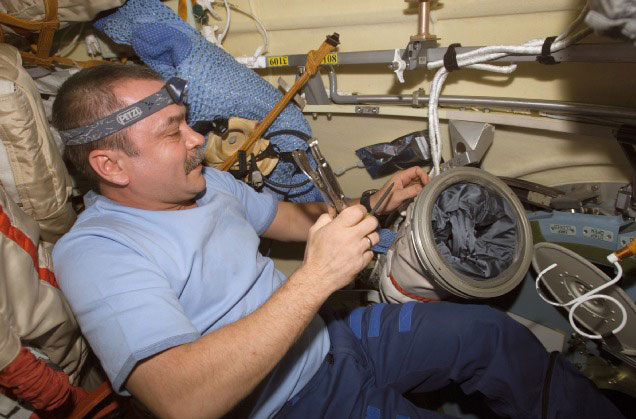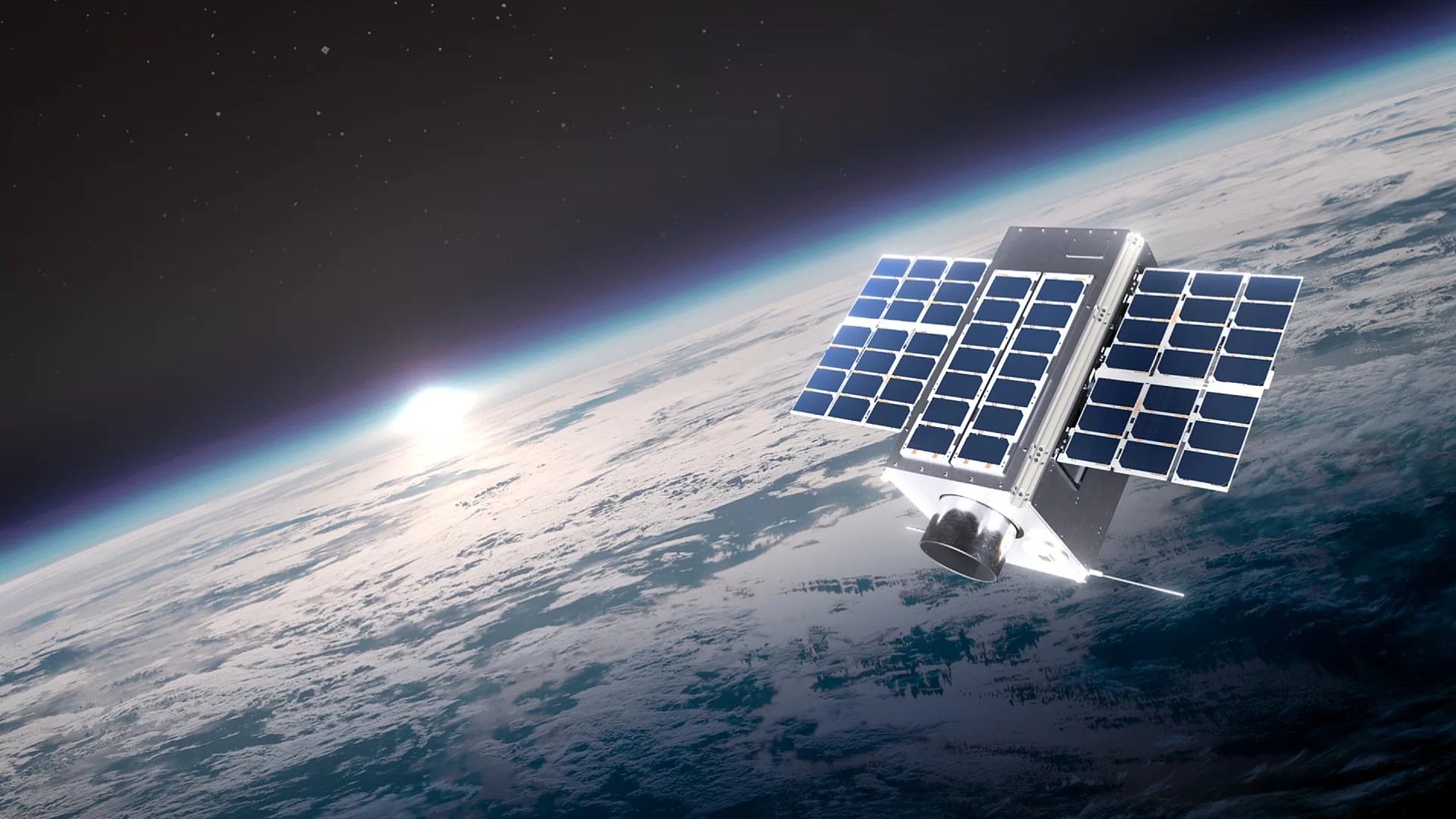Cosmonaut Careers: Russian Interest in Homegrown Spaceflyers Flags

cosmonaut--once the dream job of a lifetime formillions in this country--is increasingly less attractive because it is nolonger the ticket to international fame or a fortune. As a result, the pool ofqualified candidates for positions in Russia's cosmonaut corps is shrinking,experts said.
"In the 1960s one would dream of becoming acosmonaut, now the young men are dreaming of becoming bankers," said Sergei Shamsutdinov, an editor atthe Novosti Kosmonavtiki magazine, which is published "under the aegis" of theFederal Space Agency (Roskosmos) and Space Forces. "The romantic aspect of themanned space exploration is no longer there; it has been replaced by gray dailyroutine," Shamsutdinov told Space News in a recent telephone interview.
More importantly, Shamsutdinov said,the current members of the Russian cosmonaut corps are far lower in the socialhierarchy than they used to be in Soviet times.
Today their salaries are dwarfed by thehefty paychecks available to those working in the private sector. As a result,Shamsutdinov said, fewer students of the top Russian colleges such as the Moscow BaumanState Technical University, Moscow Aviation University and Moscow EngineeringPhysics Institute--the schools that traditionally educated future cosmonauts--are interested in joining the next generation of Russiancosmonauts.
"Theseuniversities offer very good, fundamental education, which is in demand amongemployers in the private sector," he said.
Russia currently has a total of 37 cosmonauts in threeseparate cosmonaut units managed by Rocket Space Corp. Energia of Korolev, the Institutefor Medical Biological Research in Moscow and the Russian Air Force.
Energia has 15 cosmonauts, while the Institute has two. The Air Force, which also managesthe Gagarin Cosmonaut Training Center in Star City, has 17, according to Shamsutdinov. In addition, Yuri Shargin is with the Russian Space Forces, Sergei Moshchenkoworks at the Khrunichev State Research andProduction Space Center, and Sergei Zhukov is director general of Roskosmos'Center for Technology Transfer, according to Shamsutdinov.
Breaking space news, the latest updates on rocket launches, skywatching events and more!
While Air Force pilots still displaystrong interest in joining the Russian military's Cosmonaut Unit because itleads to an increase in pay, qualified civilians are not asinterested, given the opportunities in the private sector, Shamsutdinov said.
Russiancosmonauts are paid a monthly wage of less than$767 (20,448 Russian rubles) a month and also receive bonuses for flights.
Since the latest campaign to enrollnew members into Energia's cosmonaut unit began in 2005, the organization'smanagers have had little success convincing employees to apply, Shamsutdinovsaid.
Facing lackof interest in manned exploration from its own employees, Energia has launched a program that allowsstudents to apply for membership in its cosmonaut corps even before graduation.A delegation led by Alexander Alexandrov, chief of the flight service atEnergia, has toured several Moscow universities to try to attract students, but only students at theMoscow Engineering Physics Institute displayed interest, according toShamsutdinov.
Some 20students volunteered in early 2006, but only five ended up undergoing medicaltests at the Institute for Medical Biological Research. None of them passed thetests, Shamsutdinov said.
NeverthelessEnergia did manage to tap one young talent. Nikolai Tikhonov, a 24-year oldgraduate of the Moscow Aviation Institute and currently an Energia employee,passed all medical tests and was cleared by a government commission in Octoberto begin training at the Gagarin Cosmonaut Training Center along with Elena Serova[image].
Serova, 30,is also an employee of Energia and would become the first female added to Russia's cosmonaut's corps since2004, according to Shamsutdinov.
In aninterview with the Russian edition of Newsweek in October, Pavel Vinogradov, commander of Energia's cosmonautunit, acknowledged the drop in interest. "I cannot say there is noone at all, but it is very different from the times when we had thousandsstanding in line," Vinogradov told the magazine.
Vinogradov'sdeputy and renowned Russian cosmonaut Alexander Kaleri also acknowledged that fewer young men and women are interestedin applying to become cosmonauts.
"Of course, we are no match forbankers," Kaleri, who is deputy commander of Energia's cosmonaut unit, said inan Oct. 27 interview with Space News. Kaleri also blamed the Russian media"for throwing stones at the manned space exploration, speculating that there isno longer as much need for it as there used to be."
In spite ofthe lessened interest, Russia currently has "more than enough" cosmonauts tomeet the current requirement of three cosmonauts per year for the Russian segmentof the International Space Station. Should the requirement grow to six persons for the space station a year as originally planned, the currentpersonnel strength of the Russian cosmonaut corps still would be sufficient, Kaleri said, but withonly a few in reserve.
On the positive side those who arealready in the cosmonaut corps are now more likely to fly to space, given thediminishing competition, Shamsutdinov said. While some of the Soviet-eracosmonauts would retire without ever flying to space, the current members of thecorps have to wait an average of 10 to 15 years until they log their firstflight, according to Shamsutdinov.
And Kaleri expects the interest inthe job of cosmonauts to pick up if Energia ever gets around to implementingits ambitious plans to send manned missions to other planets. "Interplanetary flights will definitelyrekindle the interest," he said.
For now,however, students of Moscow's best technical schools snub manned exploration ofspace.
"I dream toget a good job with a high salary and I don't think there are too many studentsleft who would be romantic enough to abandon material gains for cosmonautics,"David Tarkhanyan, a second year student at the BaumanUniversity, told Space News in an Oct. 30 phone interview.
- Complete Coverage: ISS Expedition 14
- IMAGES: Launch Day for Expedition 14 Crew, Anousheh Ansari
- IMAGES: Anousheh Ansari Prepares for Launch
- All About Astronauts
Simon is the founding director of Russia Matters and the assistant director of the US-Russia Initiative to Prevent Nuclear Terrorism. His arenas of expertise include Russia's foreign, defense and security policies; Russia's nuclear program; international relations terrorism and counterterrorism; nuclear terrorism; national power; military intervention; international security and defense; and space security. He was a contributing writer for Space.com covering Human Spaceflight, Space Exploration, and Space Missions.
